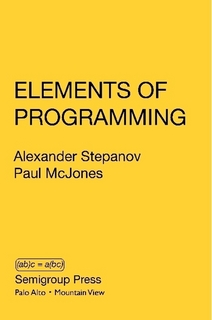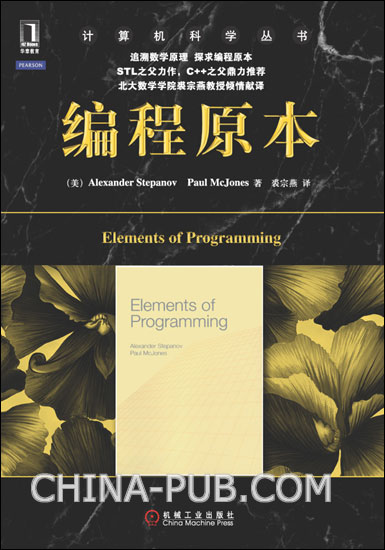Elements of Programming, by Alexander Stepanov and Paul McJones, was published this month by Addison-Wesley Professional. From the preface:
This book applies the deductive method to programming by affiliating programs with the abstract mathematical theories that enable them to work. Specification of these theories, algorithms written in terms of these theories, and theorems and lemmas describing their properties are presented together. The implementation of the algorithms in a real programming language is central to the book. While the specifications, which are addressed to human beings, should, and even must, combine rigor with appropriate informality, the code, which is addressed to the computer, must be absolutely precise even while being general.
The roots of the book go back many years. In 1976 Alex had two important revelations: an essential part of programming is to find the most general form of each algorithmic component and, as he wrote a few years ago, “Our ability to restructure certain computations to be done in parallel depends on the algebraic properties of operations. For example, we can re-order a + (b + (c + d)) into (a + b) + (c + d) because addition is associative.” Much of his subsequent career, including his development of the C++ Standard Template Library, can be described as pursuing the consequences of these ideas.
I met Alex in early 2003, shortly after each of us joined Adobe Systems. As I mentioned in an earlier post, we discovered a common connection, to John Backus. Our first collaboration was co-chairing a company-wide internal engineering conference in 2004. After that I began attending the course on Foundations of Programming that Alex was teaching at Adobe. In 2005, I joined Alex in the Software Technology Lab, which was led by our colleague Sean Parent. In 2007, Alex invited me to work with him on converting his course notes into a book. We soon concluded that a fresh start was necessary. About two years later, Elements of Programming was complete.
The code in the book can be downloaded from the companion web site.






